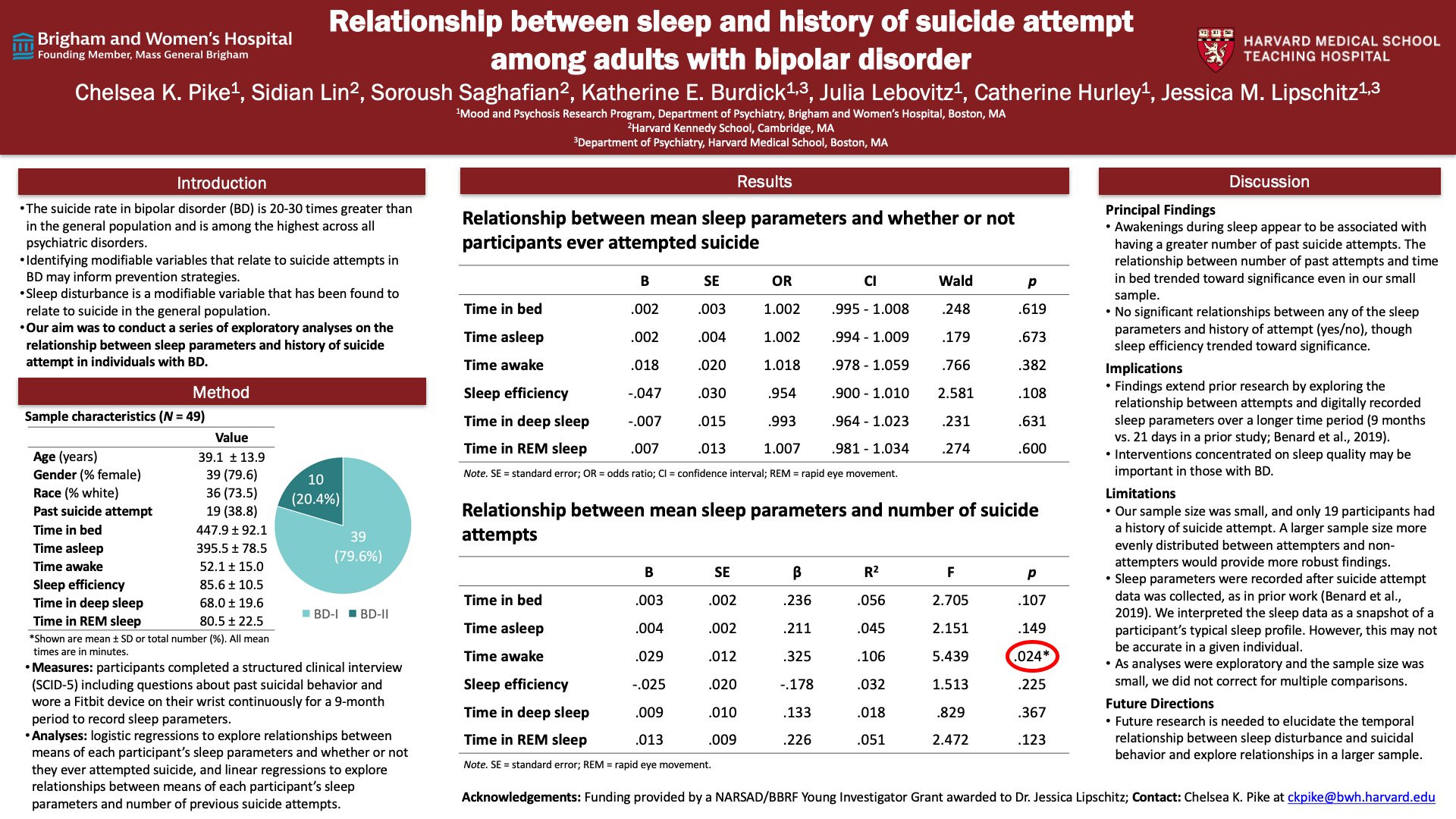Scientific Abstract
Background: Patients with bipolar disorder (BD) are among those at the highest risk for suicide across all psychiatric conditions. Identifying modifiable variables related to suicide attempts in BD may inform prevention strategies. Sleep disturbance is a modifiable variable found to relate to suicide in the general population. We aimed to explore the relationship between sleep parameters and history of suicide attempts in individuals with BD.
Methods: 49 adults with BD completed a clinical interview (Structured Clinical Interview for DSM-5, SCID-5) including questions about history of suicidal behavior and wore a Fitbit device continuously for a 9-month monitoring period. Sleep parameters recorded via Fitbit devices included: time spent in bed, time spent asleep, time spent awake, sleep efficiency, time spent in deep sleep, and time spent in rapid eye movement (REM) sleep. First, a series of logistic regressions were conducted to explore the relationships between the means of each participant’s sleep parameters over the monitoring period and whether or not they had ever attempted suicide. Next, a series of linear regressions were conducted to explore the relationships between means of each participant’s sleep parameters and number of previous suicide attempts.
Results: Those with a greater number of prior suicide attempts spent more time awake during the night (p = .024) compared to those with fewer prior attempts. The relationship between number of prior attempts and time spent in bed (p = .107) trended toward significance even in our relatively small sample size. No relationships between sleep parameters and whether or not participants had ever attempted suicide were significant, with the closest being sleep efficiency, which also trended toward signficance (p = .108).
Conclusions: Findings point to the potential relationship between sleep quality and suicidal behavior and warrant further exploration of sleep quality as an intervention target for suicide prevention. Future studies evaluating the temporal relationship between sleep disturbance and suicidal behavior would lend further insight into the direction of observed relationships.
Search posters

